Welcome to our free classical music site

Do you write about classical music? Are you a blogger? Want to team up with Classical Connect? Send us a message, let's talk!

Do you write about classical music? Are you a blogger? Want to team up with Classical Connect? Send us a message, let's talk!
This Week in Classical Music: March 13, 2023. Telemann and Two Singers. Georg Philipp Telemann, the prolific friend of Johann Sebastian Bach, was born on March 14th of 1681. We’ve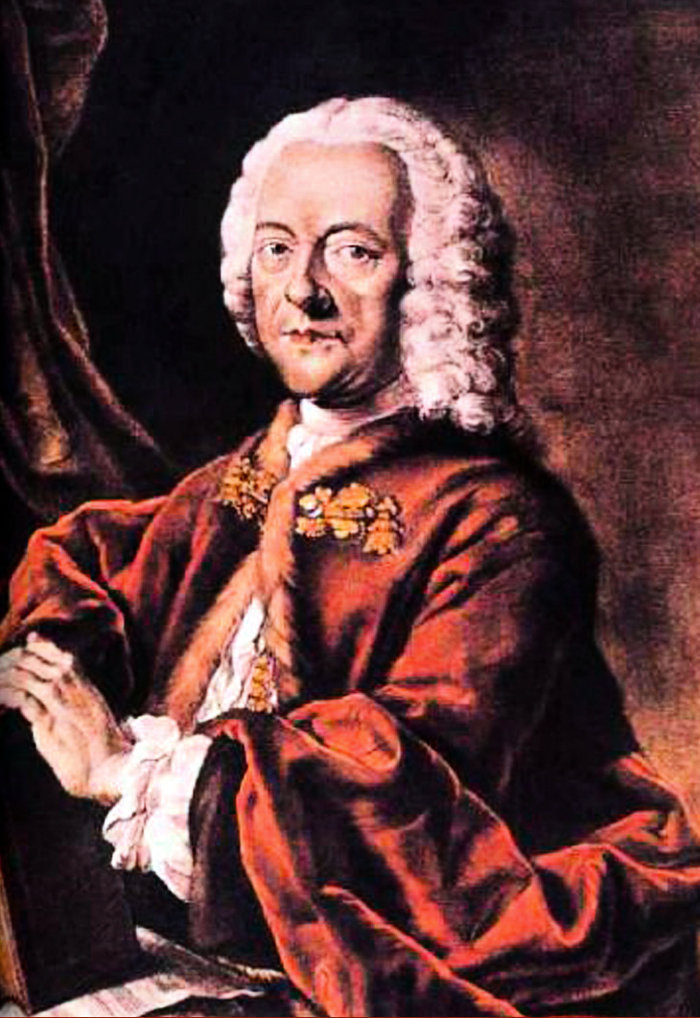 written about the “Telemann problem”: he was so abundant in his output as to make it practically impossible to account for all his compositions and to select – if not the best, then at least the most representative – pieces. Not just a wonderful composer, Telemann was also a very interesting person of apparently boundless energy: in addition to composing, he produced concerts, published music, taught, and wrote theoretical treaties. We’ll dedicate another entry to him, but this time we’ll just play some of his music – as it happens, an Orchestra suite La Bizarre (here). It’s performed by the Akademie Für Alte Musik Berlin.
written about the “Telemann problem”: he was so abundant in his output as to make it practically impossible to account for all his compositions and to select – if not the best, then at least the most representative – pieces. Not just a wonderful composer, Telemann was also a very interesting person of apparently boundless energy: in addition to composing, he produced concerts, published music, taught, and wrote theoretical treaties. We’ll dedicate another entry to him, but this time we’ll just play some of his music – as it happens, an Orchestra suite La Bizarre (here). It’s performed by the Akademie Für Alte Musik Berlin.
Two great singers were also born this week, both mezzo-sopranos and both born on the same day, March 16th: the German mezzo Christa Ludwig, and the Spanish Teresa Berganza, five years later, in 1933. Teresa Berganza died less than a year ago, on May 13th of 2022. We paid a tribute to her that year. Christa Ludwig died a year earlier, on April 24th of 2021 at the age of 93. She was born in Berlin, studied with her mother, and debuted at the age of 18 in Johann Strauss’s Die Fledermaus. In 1954 she sang the role of Cherubino in Mozart’s The Marriage of Figaro at the Salzburg festival. In 1959 she made her American debut as Dorabella in Cosi fan Tutti at the Lyric opera in Chicago (Elisabeth Schwarzkopf was Fiordiligi). She would return to Chicago five more times,.jpg) singing Cherubino in Le nozze di Figaro, Fricka in Die Walküre, and roles in Boito’s Mefistofele, Verdi’s La forza del destino, and Richard Strauss’s Der Rosenkavalier. She had a rich, very focused voice with no unnecessary vibrato. Her repertoire was large, from Monteverdi to Gluck, Mozart, Wagner, Verdi, and Berg. She was also a great lied singer and a wonderful Mahlerian, performing in his song cycles, such as Kindertotenlieder and Rückert-Lieder, and in Das Lied von der Erde and Symphony no. 3. She worked with the best conductors of her time, from Böhm and Klemperer to Bernstein, Solti, and Karajan.
singing Cherubino in Le nozze di Figaro, Fricka in Die Walküre, and roles in Boito’s Mefistofele, Verdi’s La forza del destino, and Richard Strauss’s Der Rosenkavalier. She had a rich, very focused voice with no unnecessary vibrato. Her repertoire was large, from Monteverdi to Gluck, Mozart, Wagner, Verdi, and Berg. She was also a great lied singer and a wonderful Mahlerian, performing in his song cycles, such as Kindertotenlieder and Rückert-Lieder, and in Das Lied von der Erde and Symphony no. 3. She worked with the best conductors of her time, from Böhm and Klemperer to Bernstein, Solti, and Karajan.
Here is her Dorabella in the aria È amore un ladroncello from Mozart’s Così fan tutte. Karl Böhm conducts the Philharmonia Orchestra in this 1962 recording. And here Christa Ludwig is in an exceptional recording of Gustav Mahler’s Rückert-Lieder. Herbert von Karajan conducts the Berlin Philharmonic Orchestra.Permalink
This Week in Classical Music: March 6, 2023. Honegger. The always popular Maurice Ravel was born this week, on March 7th of 1875. And so were Carl Philipp Emanuel Bach, probably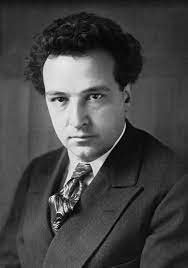 the most important composer among Johann Sebastian’s sons (on March 8th of 1714); Carlo Gesualdo, the brooding murderer and composer of huge talent (on the same day in 1566); Josef Mysliveček, a Czech friend of Mozart’s (on March 9th of 1737); and Samuel Barber, one of the most popular American composers of the 20th century (on March 9th of 1910). All of them we’ve written about on many occasions. One composer whom we’ve mentioned often but, quite undeservedly, only in passing, is Arthur Honegger, a Swiss and unusual member of Les Six.
the most important composer among Johann Sebastian’s sons (on March 8th of 1714); Carlo Gesualdo, the brooding murderer and composer of huge talent (on the same day in 1566); Josef Mysliveček, a Czech friend of Mozart’s (on March 9th of 1737); and Samuel Barber, one of the most popular American composers of the 20th century (on March 9th of 1910). All of them we’ve written about on many occasions. One composer whom we’ve mentioned often but, quite undeservedly, only in passing, is Arthur Honegger, a Swiss and unusual member of Les Six.
Honegger was born on March 10th of 1892 in the French port city of Le Havre to Swiss parents (there was an old Swiss colony in the city). As a child, Honegger studied the violin and harmony in Le Havre and then, for two years, in Zurich. At the age of 18, while still living in Zurich, he enrolled in the Paris Conservatory; he commuted there by train twice weekly. In Paris Honegger studied with Charles-Marie Widor, the famous organist and composer, and Vincent d'Indy. In 1913 Honegger settled in Montmartre, where he lived for the rest of his life. While at the Conservatory, he met Germaine Tailleferre, Georges Auric, Darius Milhaud, all future members of Les Six (Milhaud became his closest friend), and Jacques Ibert, with whom he would later collaborate on two pieces. In 1926 Honegger married a fellow pianist Andrée Vaurabourg. Their married life was unusual: Honegger required solitude to compose, so Andrée resided with her mother, while Honegger visited her every day for lunch. They lived apart for the rest of their married life, except for a period following Vaurabourg’s car accident, when Honegger took care of her, and at the end of Honegger’s life. Despite this arrangement, they had a daughter who was born in 1932. Vaurabourg was Honegger’s most trusted musical advisor; an excellent pianist, she was also a prominent teacher: among her students was Pierre Boulez.
During WWII Honegger remained in Paris and taught at the Ecole Normale de Musique. Depressed during the war, he further suffered from heart problems (a heart attack in 1947 almost killed him). He was in poor health for the rest of his life and died in November of 1955, the first of the Les Six. And speaking of Les Six, it was never a unified group, and esthetically, a serious-minded Honegger, mostly interested in large-form compositions like operas and musical dramas, was an odd man out. What kept them all together was stimulating companionship and appreciation of each other’s talent.
A composition that brought Honegger international fame was a 27-movement incidental score to a biblical drama Le roi David. Among his most popular pieces is Pacific 231, inspired by the sounds of a steam locomotive (Honegger was a big train enthusiast, he also loved fast cars and rugby). Here’s his last symphony, no. 5, subtitled “Di tre re” (or Of the three Ds, “re” is note D in the French notation. This note is played at the end of each movement). The Danish National Radio Symphony Orchestra is conducted by Neeme Järvi.Permalink
This Week in Classical Music: February 27, 2023. A mystery composer. Whom do you write about when you have Frédéric Chopin, Antonio Vivaldi, Gioachino Rossini, Bedřich Smetana,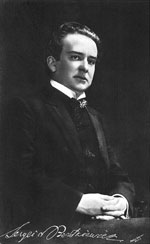 and Kurt Weill among the composers born this week, plus the pianist Issay Dobrowen, the violinist Gidon Kremer, the soprano Mirella Freni, and the conductor Bernard Haitink? The obvious answer is, you write about Sergei Bortkiewicz. Yes, we’re being facetious, but we’ve written about Chopin, Vivaldi, and Rossini many times (we haven’t had a chance to write about Dobrowen yet, a very interesting figure). Bortkiewicz, on the other hand, is a composer we knew only by name until recently when we heard his Symphony no. 1 and thought it was something from the late 19th century, maybe a very early Rachmaninov – but no, it turned out to be a piece composed in 1940. While conservatism is not the most admirable feature, Bortkiewicz is not alone in that regard: the above-mentioned Rachmaninov was also not the most adventuresome composer. Neither was Rimsky-Korsakov, not even Tchaikovsky, which didn’t preclude both of them from writing very interesting (and popular) music. Richard Strauss, for all his talent, was a follower of the Romantic tradition. Even Johann Sebastian Bach in his later years was well behind the prevailing trends of his time. Listen, for example, to two pieces written at about the same time: 1741-1742, Johann Sebastian’s wonderful, if somewhat archaic, Cantata Bekennen will ich seinen Namen BWV 200 (here), and then C.P.E.’s Symphony in G major, Wq. 173, written in the then “modern” style (here). They belong to different eras, even if the cantata is much better. We admire and love the pioneers like Mahler, Schoenberg, and Stravinsky, but as important as they are, there is a lot of space in the musical universe for the less daring composers. We’re not comparing the talent of Sergei Bortkiewicz with that of the “conservatives” mentioned above, but some of his music is pleasant and his life story is interesting.
and Kurt Weill among the composers born this week, plus the pianist Issay Dobrowen, the violinist Gidon Kremer, the soprano Mirella Freni, and the conductor Bernard Haitink? The obvious answer is, you write about Sergei Bortkiewicz. Yes, we’re being facetious, but we’ve written about Chopin, Vivaldi, and Rossini many times (we haven’t had a chance to write about Dobrowen yet, a very interesting figure). Bortkiewicz, on the other hand, is a composer we knew only by name until recently when we heard his Symphony no. 1 and thought it was something from the late 19th century, maybe a very early Rachmaninov – but no, it turned out to be a piece composed in 1940. While conservatism is not the most admirable feature, Bortkiewicz is not alone in that regard: the above-mentioned Rachmaninov was also not the most adventuresome composer. Neither was Rimsky-Korsakov, not even Tchaikovsky, which didn’t preclude both of them from writing very interesting (and popular) music. Richard Strauss, for all his talent, was a follower of the Romantic tradition. Even Johann Sebastian Bach in his later years was well behind the prevailing trends of his time. Listen, for example, to two pieces written at about the same time: 1741-1742, Johann Sebastian’s wonderful, if somewhat archaic, Cantata Bekennen will ich seinen Namen BWV 200 (here), and then C.P.E.’s Symphony in G major, Wq. 173, written in the then “modern” style (here). They belong to different eras, even if the cantata is much better. We admire and love the pioneers like Mahler, Schoenberg, and Stravinsky, but as important as they are, there is a lot of space in the musical universe for the less daring composers. We’re not comparing the talent of Sergei Bortkiewicz with that of the “conservatives” mentioned above, but some of his music is pleasant and his life story is interesting.
Sergei Bortkiewicz was born in Kharkiv on February 28th of 1877. Back then Kharkiv was part of the Russian Empire; now it is a city in Ukraine being constantly attacked by Putin’s Russian army. He studied music first in his hometown, then in St.-Petersburg, where one of his teachers was Anatoly Lyadov. In 1900 he entered the Leipzig Conservatory, where he studied piano and composition for two years. From 1904 to 1914 he lived in Berlin. While there he wrote a very successful Piano Concerto no. 1. At the outbreak of WWI, he, as a Russian citizen and therefore an enemy, was deported from Germany. Bortkiewicz settled temporarily in St.-Petersburg and then moved back to Kharkiv. After the October Revolution, amid the chaos of the Civil War, he emigrated to Constantinople and then, in 1922, to Vienna, where he lived for the rest of his life (he died there in 1952). In 1930 he wrote his Piano Concerto no. 2 for the left hand; it was one of the pieces commissioned by Paul Wittgenstein, the pianist who lost his right hand during the Great War. Altogether Bortkiewicz composed three piano concertos, two symphonies, an opera and several other symphonic and chamber pieces, all in the late-Romantic Russian style. It was as if the music of the 20th century hadn’t existed.
Here's Bortkiewicz Piano Concerto no. 1. It’s performed by Ukrainian musicians: Olga Shadrina is at the piano; Mykola Sukach is conducting the Odessa Philharmonic Orchestra. Permalink
This Week in Classical Music: February 20, 2023. Caruso. To our surprise, we realized that we’ve never written about Enrico Caruso, probably the greatest tenor of all time. (Come to think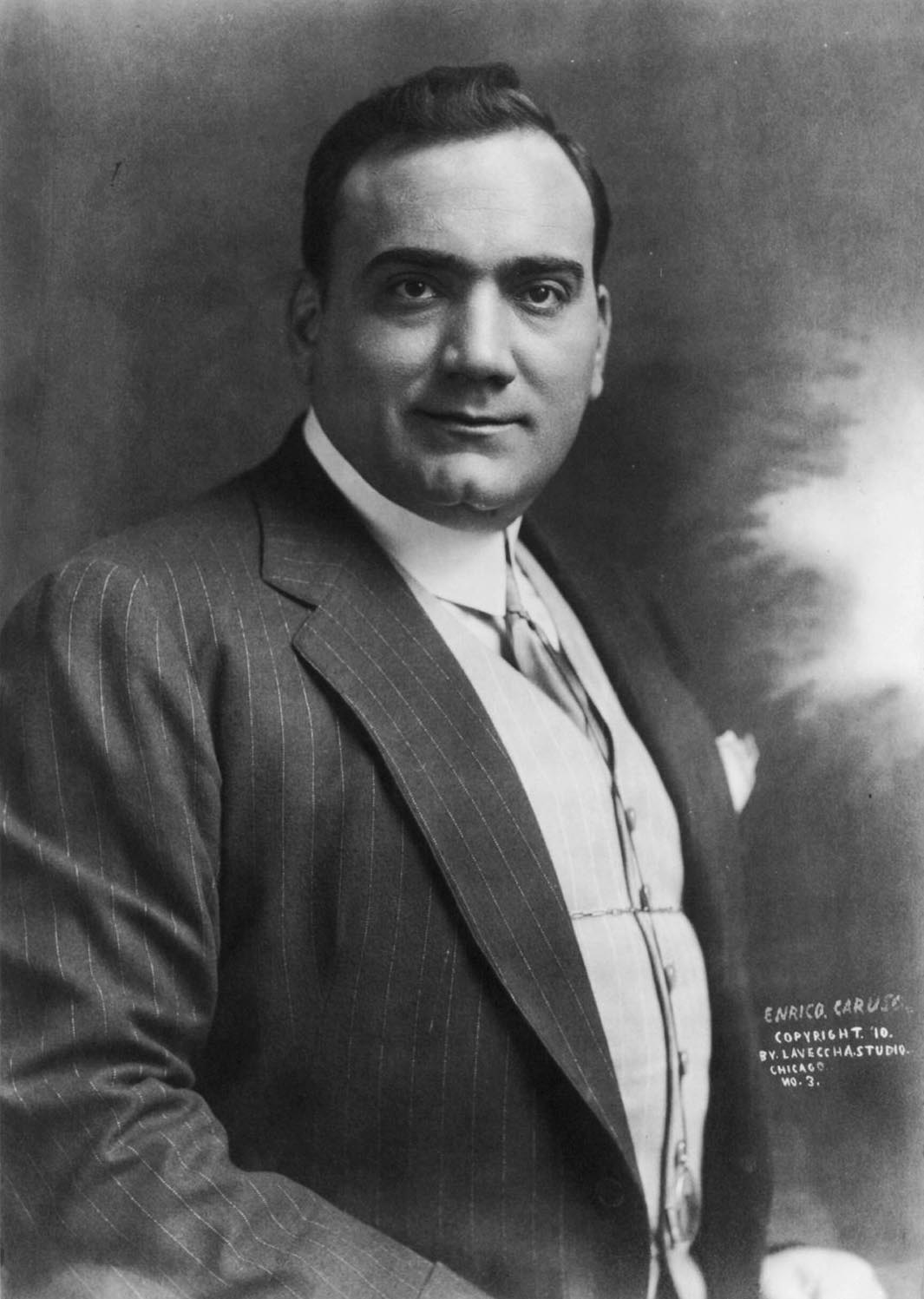 of it, we’ve never written about Beniamino Gigli either – we’ll certainly have to do it on his birthday, which comes in a month). Caruso was born in Naples on February 25th of 1873, so we’re celebrating not just any anniversary, but his 150th!
of it, we’ve never written about Beniamino Gigli either – we’ll certainly have to do it on his birthday, which comes in a month). Caruso was born in Naples on February 25th of 1873, so we’re celebrating not just any anniversary, but his 150th!
Caruso’s family was poor and had little formal education. As a boy, he had a nice but small voice, and one of his vocal teachers, upon first hearing him, pronounced that his voice was "too small and sounded like the wind whistling through the windows." Because he had little formal vocal training, his career had a bumpy start. Caruso had strained high notes and sounded more like a baritone than a tenor. His appearance at La Scala during the 1900–01 season in La bohème with Arturo Toscanini was not a success. Knowing how brilliant Caruso’s upper register was once he had fully developed his voice, it’s difficult to imagine his early struggles.
Caruso sang at several premieres: in 1897 in Milan, the title role in Francesco Cilea’s L'arlesiana, and in 1902 at the premiere of Adriana Lecouvreur, also by Cilea. It seems that somewhere around 1902 Caruso gained full control of his voice and from that point on went from one triumph to another, singing in Italy, then at the Convent Garden, and later at the Met. What used to be problematic had by then turned into an advantage: to quote Grove Music Dictionary, “the exceptional appeal of his voice was, in fact, based on the fusion of a baritone’s full, burnished timbre with a tenor’s smooth, silken finish, by turns brilliant and affecting.”
The Met became Caruso’s main stage: he sang 850 performances there and created 38 roles, some legendary, such as Canio in Leoncavallo’s I Pagliacci, Rodolfo in Puccini’s La bohème and Cavaradossi in Tosca, and Radames in Verdi’s Aida. A unique aspect of Caruso’s career was his relationship with the nascent recording industry. In 1903 he signed a contract with the Victor Talking Machine Company and later with the related Gramophone Company. During his time, all recordings were made acoustically, with the tenor singing into a metal horn (the electric recording was invented around 1925, after Caruso’s death). The records contained just 4 ½ minutes of music, which limited the repertoire Caruso could record (often music was edited to fit a record). And of course, these were not high-fidelity records, they distorted the timber of Caruso’s voice and lost some overtones. Still, they proved to be tremendously popular, helping both the industry and the singer. It was said that Caruso made the gramophone, and it made him.
During his career, Caruso partnered with the best singers of his generation, such as Nellie Melba, Amelita Galli-Curci, and Luisa Tetrazzini. He toured, triumphantly, across Europe and South America. Unfortunately, his career was short. In September of 1920, he fell ill with an undetermined internal pain; eventually got better but the December 11th performance of L'elisir d'amore had to be canceled after the first act, as Caruso suffered throat bleeding. It was later determined that he had pleurisy. His lungs were drained, and he started recuperating. Caruso returned to Naples in May of 1921, which probably was a mistake: his care there was inadequate, and he died on August 2nd of 1921.
With all the deficiencies of the old recording, we still can enjoy Caruso’s magnificent voice. Here are several of them. Se quel guerrier io fossi! Celeste Aida, from Act 1 of Verdi’s Aida; Una furtiva lagrima, from Act 2 of Donizetti’s L'elisir d'amore; La donna è mobile from Act 3 of Verdi’s Rigoletto; Ella mi fu Rapita...parmi veder le lagrime, from Act 2 of the same opera; Addio alla madre, from Mascagni’s Cavalleria Rusticana; and Vesti la giubba from Act 1 of I Pagliacci by Leoncavallo.Permalink
This Week in Classical Music: February 13, 2023. Eight composers. This is one of those weeks when practically every day brings an interesting composer – sometimes two – to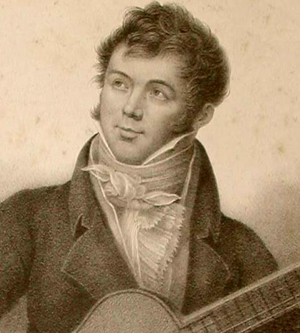 commemorate. Some of them are more interesting than others, but all are worth mentioning. So, let’s go through the list. Fernando Sor, a Spanish composer best known for his music for the guitar, was born on this day in 1778. Sor himself was a guitar virtuoso and wrote hundreds of pieces for the instrument, from easy exercises for beginners to some extremely difficult ones. Here are Sor’s Variations on a theme from Mozart’s The Magic Flute (they are from the “difficult” category). The Variations are performed by the Spanish guitarist Rafael Serralet.
commemorate. Some of them are more interesting than others, but all are worth mentioning. So, let’s go through the list. Fernando Sor, a Spanish composer best known for his music for the guitar, was born on this day in 1778. Sor himself was a guitar virtuoso and wrote hundreds of pieces for the instrument, from easy exercises for beginners to some extremely difficult ones. Here are Sor’s Variations on a theme from Mozart’s The Magic Flute (they are from the “difficult” category). The Variations are performed by the Spanish guitarist Rafael Serralet.
On the 14th of February, we have two birthdays: Francesco Cavalli, in 1602, and Alexander Dargomyzhsky, in 1813. Cavalli, a Venetian, was one of the pioneers of what was then a very new Italian art form, opera. Almost forgotten for centuries, his work has been revived in the past decades with operas staged at Glyndebourne and by small companies like Chicago’s Haymarket Theater. Here is Cavalli’s version of Ombra mai fu, from his opera Xerse. Dargomyzhsky was a Russian composer of the generation between Glinka and Mighty Five, a generation rather scant on musical talent. Two of his operas, Rusalka and The Stone Guest, which he didn’t complete (it was finished by Cui and Rimsky-Korsakov) are regularly staged in Russia. Dargomyzhsky wrote about 100 songs, some of them lovely.
On the 15th we have either one or two anniversaries. One is clear: Georges Auric, the French composer and a member of Les Six, was born on this day in Lodève, a small town not far from Montpellier (you can read more about Auric here). The second birthday is more speculative: Michael Praetorius may have been born on February 15th in 1571. A prolific and talented composer, he was 14 years older than Heinrich Schütz and one of the earliest German composers of note. Here’s our detailed entry from some years ago.
Two composers, the Italian Arcangelo Corelli, and the Belgian, Henri Vieuxtemps, were born on the 17th of February, the former in 1653, and the latter in 1820. Even though their music could not be more different (one was a Romantic, while the other worked during the height of the Baroque era), their lives present many similarities. Both were virtuoso violinists and created schools of violin playing. And both had fine violins: about Corelli’s instruments we know only indirectly as it is said that his only indulgence was buying art and fine violins, whereas Vieuxtemps played what is now considered one of the greatest instruments ever made, the Vieuxtemps Guarneri del Gesù. In the 20th century, this instrument was played by Yehudi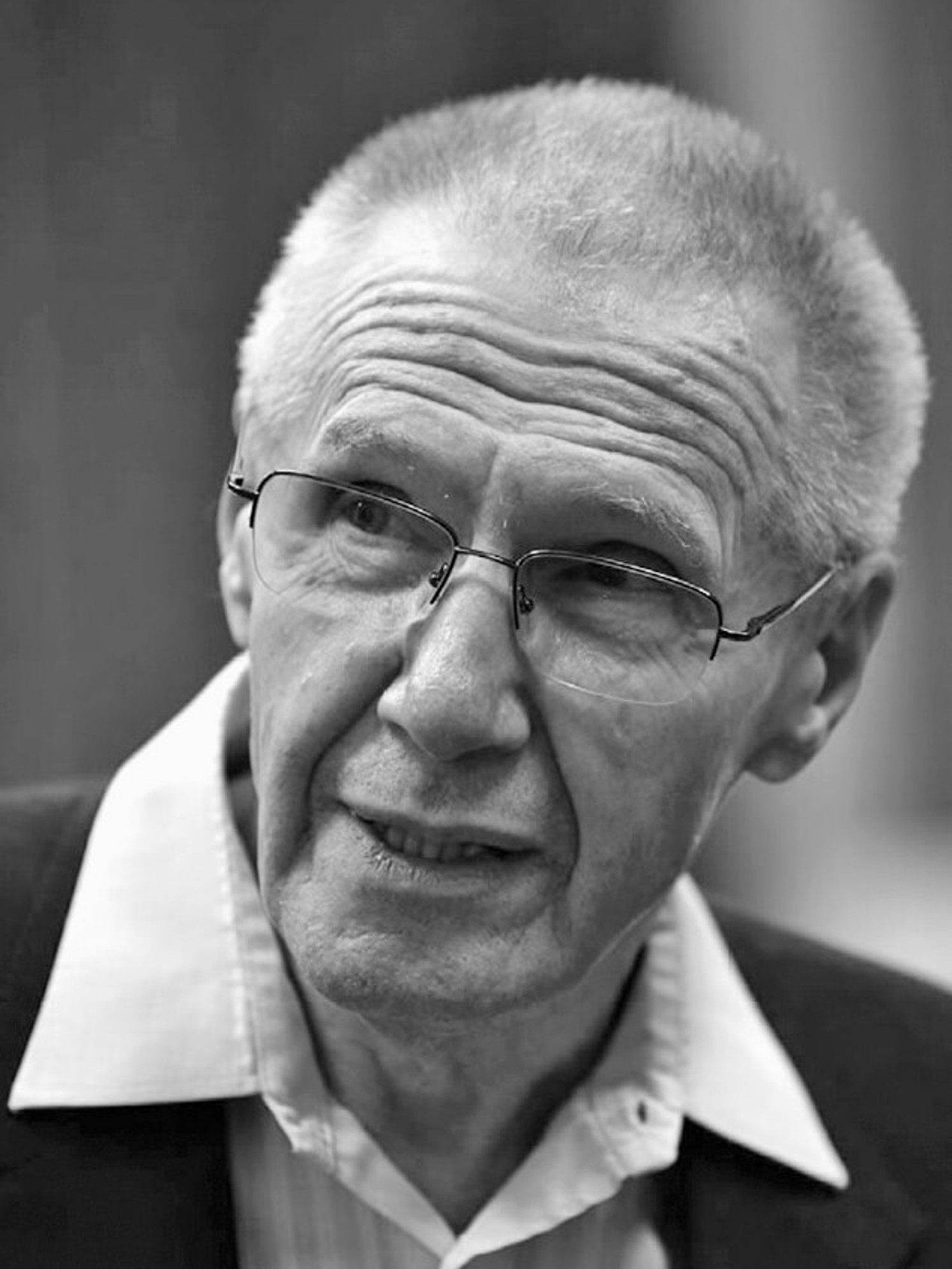 Menuhin, Itzhak Perlman, and Pinchas Zukerman. The violin is in perfect condition, and in 2013 the Economist magazine estimated its price to exceed $16 million. We can safely assume that today it’s much higher.
Menuhin, Itzhak Perlman, and Pinchas Zukerman. The violin is in perfect condition, and in 2013 the Economist magazine estimated its price to exceed $16 million. We can safely assume that today it’s much higher.
Luigi Boccherini was born on the 19th of the month, in 1743. And last but not least, on that day György Kurtág will turn 97! He’s one of the most interesting (and widely recognized) contemporary composers. Here, from 1988, is his ...quasi una fantasia… for the piano and orchestral ensemble. This piece comes from the time when Kurtág was interested in the special effects of sound, placing instruments in different parts of the hall and on different levels. And here is his early set called Eight Piano Pieces, op. 3 (all eight run less than seven minutes). It’s performed by the pianist I-Ting Wen.Permalink
This Week in Classical Music: February 6, 2023. Berg, Arrau and more. It so happened that for the last month, we’ve been preoccupied with Austro-German composers, first with the mostly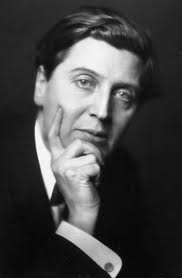 Jewish, and now mostly forgotten, composers who flourished early in the 20th century, then with Mozart and Quantz. This week brings another name, which would firmly fit into the same category – that of Alban Berg, who was born in Vienna on February 9th of 1885. Fortunately, we’ve written about Berg many times, so, in addition to the recent posts, we can refer you, for example to theseentries. In the meantime, we’ll turn to performers whom we’ve neglected in our recent posts. Arthur Rubinstein and John Ogdon were born in late January, the former on the 28th in the year 1887, and the latter on the 27th, exactly 50 years later, in 1937. Rubinstein lived a wonderfully long life, almost 96 years, and performed well into his 80s (he gave his last concert in London in 1975, when he was 89). On the other hand, Ogdon’s career was brief: at the age of 36 he experienced a mental breakdown, and from that time till his death in 1989 at the age of 52, he gave just a few concerts.
Jewish, and now mostly forgotten, composers who flourished early in the 20th century, then with Mozart and Quantz. This week brings another name, which would firmly fit into the same category – that of Alban Berg, who was born in Vienna on February 9th of 1885. Fortunately, we’ve written about Berg many times, so, in addition to the recent posts, we can refer you, for example to theseentries. In the meantime, we’ll turn to performers whom we’ve neglected in our recent posts. Arthur Rubinstein and John Ogdon were born in late January, the former on the 28th in the year 1887, and the latter on the 27th, exactly 50 years later, in 1937. Rubinstein lived a wonderfully long life, almost 96 years, and performed well into his 80s (he gave his last concert in London in 1975, when he was 89). On the other hand, Ogdon’s career was brief: at the age of 36 he experienced a mental breakdown, and from that time till his death in 1989 at the age of 52, he gave just a few concerts.
Two wonderful cellists were also born in late January: Jacqueline du Pré, on the 26th in 1945, and Lynn Harrell, on the 30th in 1944. Here we have a similar story: Harrell performed till the ripe age of 76 (he died, suddenly, in 2020). The du Pré tragedy is widely known, it was portrayed in books and film: a tremendously talented musician, she was struck by multiple sclerosis in 1971, when she was only 26 (she died on 19th of October 1987 at the age of 42). Let’s listen to both cellists in the same Cello concerto by Antonin Dvořák. Here Jacqueline du Pré performs the first movement of the concerto. This recording was made live in Stockholm in 1967 with the Swedish Radio Symphony Orchestra, Sergiu Celibidache conducting. And here Lynn Harrell plays the second movement. This recording was made in 1982 in London with Vladimir Ashkenazy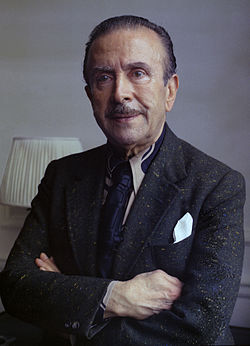 conducting the Philharmonia Orchestra.
conducting the Philharmonia Orchestra.
This week we commemorate the anniversary of the great Chilean pianist Claudio Arrau, who was born on this day in 1903. A child prodigy, he gave his first public concert at the age of five. At the age of 11, he played all of Liszt’s Transcendental Etudes; that was also the year when he gave his first concert in Berlin, where he would live and teach from 1924 to 1940. In 1935 he gave 12 concerts playing all of Bach’s keyboard compositions. In 1941 he settled in New York. He played several complete cycles of Beethoven’s sonatas, both in the US and in Europe, and continued to perform into his 80s. Arrau had an enormous repertoire. It was said that he could play 76 different recitals without repeating a single piece, not counting the piano concertos. We can think of only Sviatoslav Richter having a broader range. Considering that much of Arrau’s repertoire was recorded, it’s difficult to pick one piece to demonstrate his talent. So, we’ll give you two Beethoven sonatas: first, Piano Sonata No. 21 "Waldstein" in C major, op. 53, recorded in 1963, and then, Piano Sonata No. 17 “Tempest” in D minor, Op. 31, No. 2, recorded in 1965. The tempos are slow but the results are profound.
Permalink